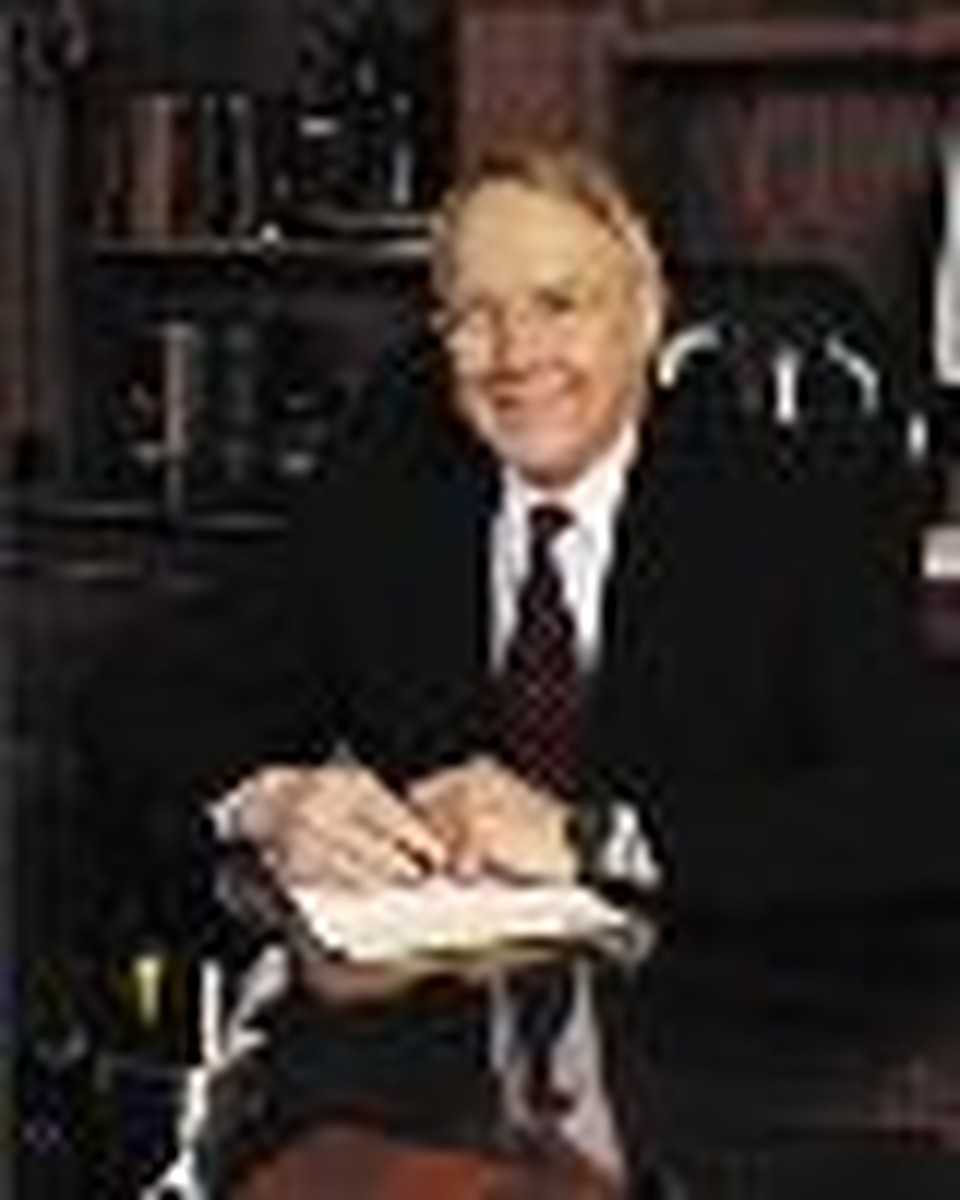Getting Out the Christian Vote: Why Your Choice Matters

If you’re among those eligible voters who haven’t decided whether you’ll even bother to make your voice heard on Election Day, I want to urge you — in the strongest possible terms to rethink your position!
In a sense, every election is a "crossroads," especially when it involves the selection of national leadership. Whether directly or indirectly, our President and congressmen will be making life and death decisions on our behalf over the next four years. These decisions will continue to have an impact long after the individuals have left office.
In the next four years, for example, the President may make from one to three appointments to the U.S. Supreme Court. Given the unprecedented power of the court today, the selection of those justices could have a profound affect on the country for decades.
Other critical issues will be decided in the next quadrennial, including how the war on terror will be fought; whether helpless, frozen embryos will be sacrificed in the name of medical research; whether the "right" to kill preborn children will continue unabated; and whether marriage will continue to be defined in law as the sacred union of one man and one woman. Without a doubt, you and I and millions of other Christians have a vested interest in how these and other questions will be answered.
Last July, we witnessed a dramatic example of this ability of our elected officials to either strengthen or weaken the institution of the family. It occurred when 50 senators filibustered the Federal Marriage Amendment, not even letting it come up for a vote. They "stiff armed" the tens of thousands of citizens who called to insist that they defend the family. These senators turned a deaf ear to those pleas, obviously caring more about staying in office than doing what is right.
Thus, the homosexual lobby scored yet another victory. Ironically, the same senators who complained that it was a waste of time to debate an amendment to protect the family found the time a month earlier to pass "hate-crimes" legislation when no one was watching. Every Democrat and 18 Republicans voted for the provision supported by Senator Ted Kennedy and his friends in the homosexual community. Cleverly attached to the National Defense Authorization Act, in a time of war, this legislation threatens religious liberty in this country.
This disregard for traditional values should not surprise us. Since 1969 when the Congress began taxing married couples at a higher rate than those who were (and are) living together without marrying, the family has been ignored, wounded and weakened by those we have sent to represent us.
It comes down to this: Our senators have left the historic institution of marriage at the mercy of unelected, unaccountable, arrogant judges, who have already signaled their intention to create same-sex marriages, just as four ultra-liberal judges on the Massachusetts Supreme Judicial Court did in May.
There are important issues being played out in this year’s state and local elections, too. As many as 11 states will have an opportunity to protect the institution of marriage with state constitutional amendments. Oregon is the state that most concerns us, because activists have targeted that election as the one they have the best chance to win. Floridians will decide whether or not to pass a measure requiring parental notification in the event of a minor seeking an abortion. California voters will be asked to fund embryonic stem cell research with a three billion dollar bond issue. Unbelievably, this is occurring in a state that is almost bankrupt. Alaskan citizens face an initiative to decriminalize marijuana— and California, Nebraska, Oklahoma and Washington citizens will all vote on proposed referendums to expand gambling in one form or the other.
These are just a few examples this year of the significant issues that will be put before the people of these United States.
Every Vote Does Count
Some of you may already be convinced that there are serious issues to consider this year, but you might not believe that your single vote has the power to affect the outcome of the election. However, history proves that the adage "every vote counts" is not just a cliché! We all remember the 2000 presidential election, which was so close that the outcome could not be determined until weeks after voting had actually taken place. However, there have been a number of other elections in recent history that have been decided by only a handful of votes — and in some cases, by one vote!
Consider these dramatic "one vote" election decisions, as recorded by the Federal Election Commission:
- In 1997, Vermont state representative Sydney Nixon was seated as an apparent one vote winner, 570 to 569. Mr. Nixon resigned when the State House determined, after a recount, that he had actually lost to his opponent Robert Edmond, 572 to 571.
- In 1989, a Lansing, Michigan school district millage proposition failed when the final recount produced a tie vote, 5,147 for and 5,147 against. On the original count, votes against the proposition were 10 more than those in favor. The result meant that the school district had to reduce its budget by $2.5 million.
- In 1994, Republican Randall Luthi and Independent Larry Call tied for a seat in the Wyoming House of Representatives from the Jackson Hole area with 1,941 votes each. A recount produced the same result. Mr. Luthi was finally declared the winner when, in a drawing before the Senate Canvassing Board, a ping pong ball bearing his name was pulled from the cowboy hat of Democratic Governor Mike Sullivan.
- In 1997, South Dakota Democrat John McIntyre led Republican Hal Wick 4,195 to 4,191 for the second seat in Legislative District 12 on election night. A subsequent recount showed Wick the winner at 4,192 to 4,191. The State Supreme Court, however, ruled that one ballot counted for Wick was invalid due to an overvote. This left the race as a tie. After hearing arguments from both sides, the state legislature voted to seat Wick 46 to 20.
Several other high-profile elections in U.S. history have been decided by the tiniest of margins. Averill Harriman’s gubernatorial election of 1954, and George McGovern’s and John Warner’s senatorial victories in 1960 and 1978, respectively, were all decided by one vote or less per precinct. The presidential race between Richard Nixon and John F. Kennedy in 1960 was also a neck-and-neck contest. After all of the votes had been tallied, an average margin of only one-half vote per precinct nationwide separated the winner from the loser!
Half Not Even Registered
Despite these examples, statistics continue to show that many Americans, both Christian and non-Christian, will not take the time to vote in a given election.
Recent studies indicate that half of the Christians in America are not even registered to vote, and of those that are, only half will go to the polls. In terms of numbers, 39 million Christians did not vote in 2002, and 24 million will not be able to vote in 2004 because they aren’t registered. What a sad commentary! In our apparent unwillingness to bring our beliefs and values to bear upon the world around us, we run the risk of losing our ability to act as salt and light. I am reminded of Christ’s words during the Sermon on the Mount: "Salt is good, but if it loses its saltiness, how can you make it salty again? Have salt in yourselves…" (Mark 9:50a, NIV).
That is why I have made such a significant investment of time and energy in recent weeks to encourage my readers and listeners to stay informed, to register and then to "get out the vote." Over the past two months, I have traveled extensively and made numerous public appearances, including six "Stand for the Family" rallies in North Carolina, Louisiana and South Dakota. I have never involved myself to this extent in the buildup to a national election, and quite frankly, I do not relish the idea of taking on such a vocal and public role.
However, the issues we care about this year are simply too pressing and too serious to allow me to sit on the sidelines. Christians can and should make a difference in the outcome of the election, and I hope that this year, in particular, they will turn out in droves at the polls. After all, voting is not only a privilege, but a responsibility to God, to our country, to our children and ourselves.
It is also our responsibility to get ourselves properly informed before casting a ballot. You will need to invest sufficient time in researching the various candidates and in deciding which individuals’ views and beliefs most closely align with your own. This is no small task, but it is well worth the investment. If you will stay up-to-date on the issues and then simply vote your conscience on Election Day, you can have the satisfaction of knowing that you have done your part to influence our country for righteousness. Two good places to start would be Focus on the Family’s "CitizenLink" Web site (citizenlink.org) or our flagship site, www.family.org. Both of these resources contain articles, contact information, links and a wealth of additional material that will help you keep abreast of the latest developments as Election Day nears.
May I suggest that you not only vote on November 2, but try to take one or more people with you? You might even provide transportation. I like the slogan, "Won by One," which refers to this effort to bring someone who might not otherwise take the time to do their duty. Likewise, you might offer to baby-sit to facilitate participation. If everyone did this, the results might be very different, and the Congress could be transformed.
Finally, of course, as a person of faith, your trip to the polls must be preceded by a time of earnest prayer. Pray that the Lord would grant you wisdom as you prepare to cast your vote. Pray that His will would be accomplished in the election and that the leaders of His choosing would win their respective races.
And pray that those who hold positions of authority over us, both now and after the election, would draw near to God and seek His face as they embrace the numerous responsibilities placed upon them. Some who are familiar with the concept of fasting might want to consider doing that as we approach the election. Wouldn’t it be wonderful if a million Christians were giving up the pleasure of eating for a day, asking for the Lord’s guidance on Election Day?
If you’re eligible to vote, please don’t abdicate your responsibility to have a say in the outcome of this important decision.
Reprinted from Dr. Dobson's October 2004 newsletter with permission of Focus on the Family. All rights reserved.
Originally published October 26, 2004.




